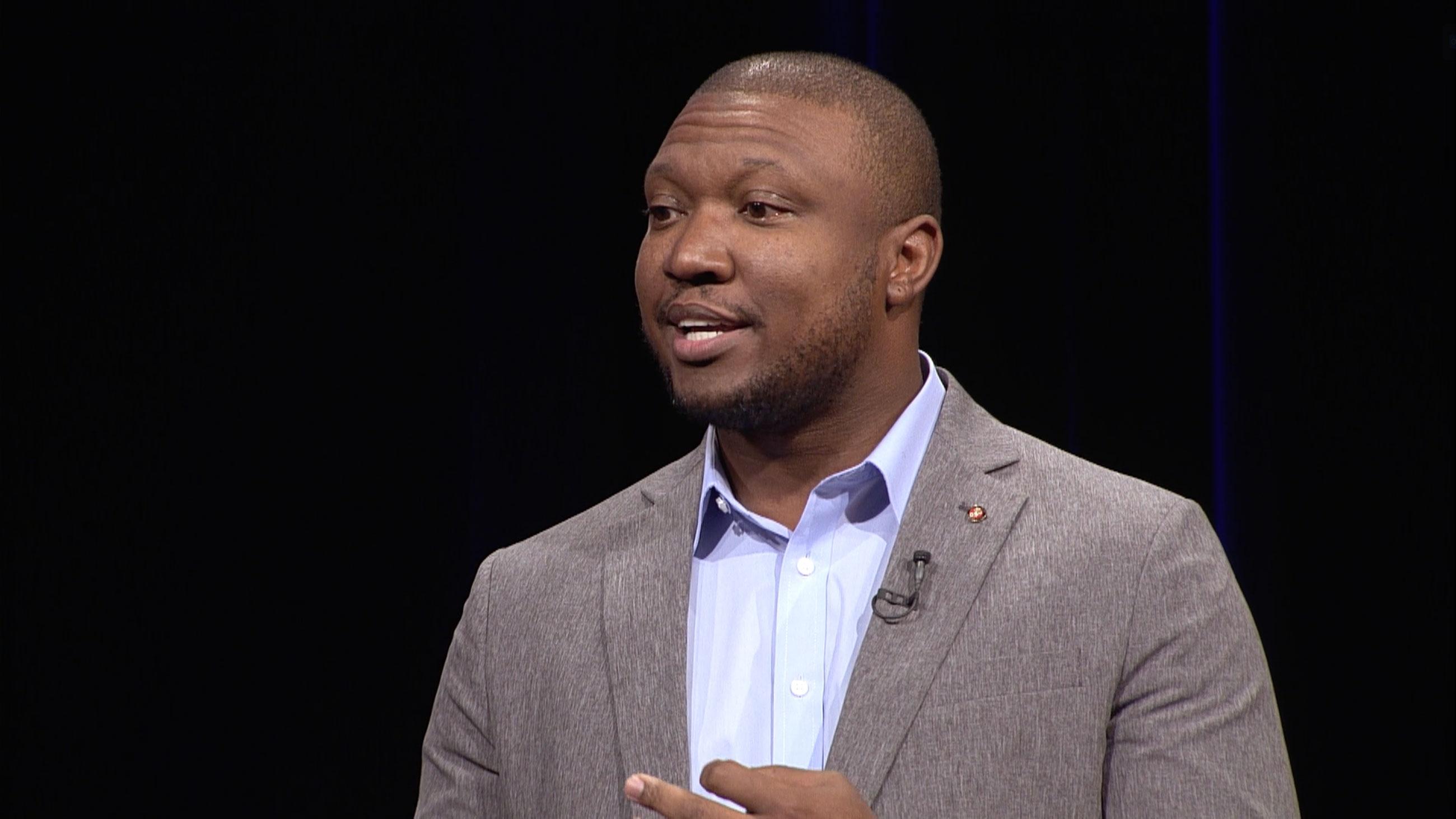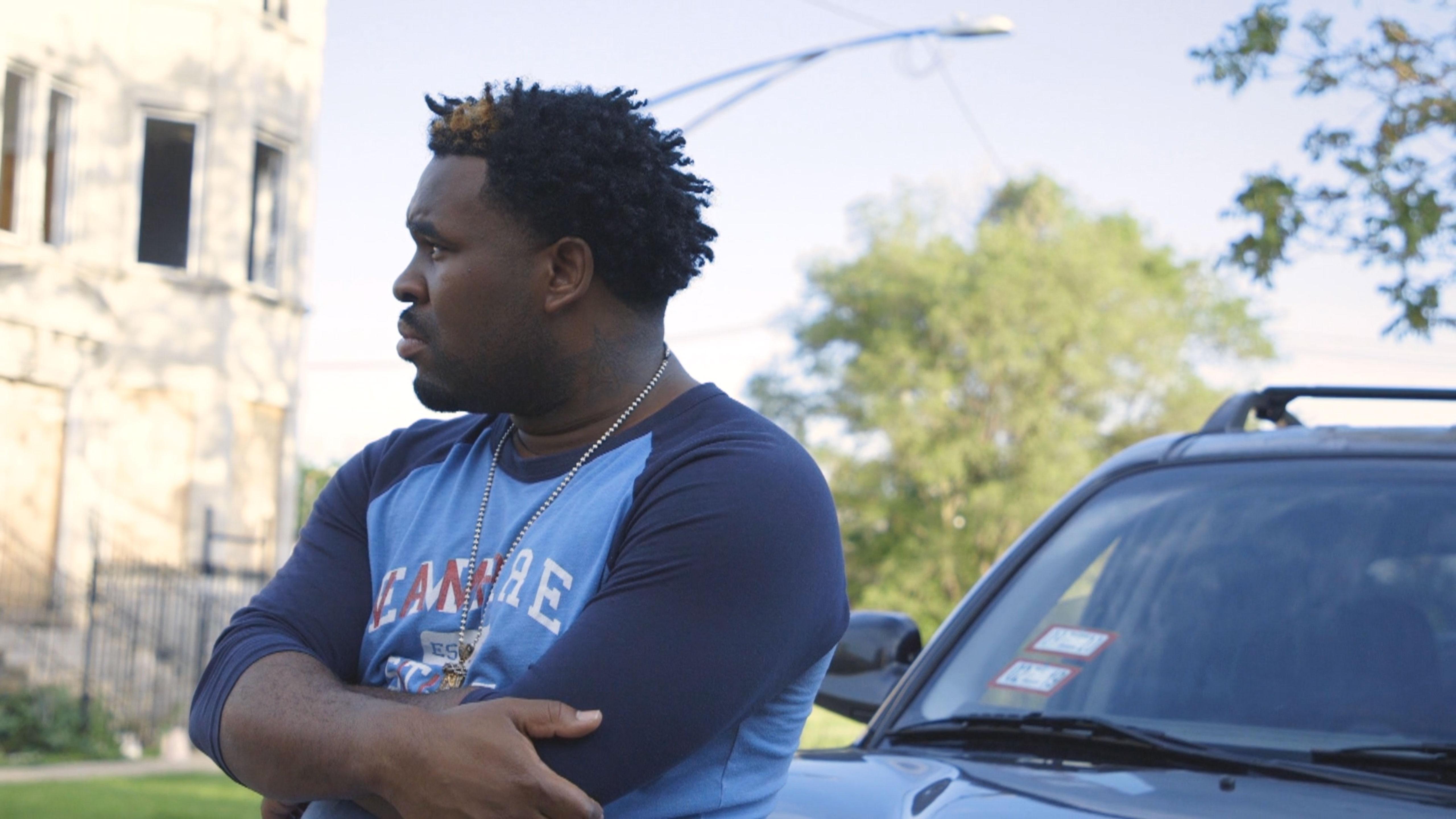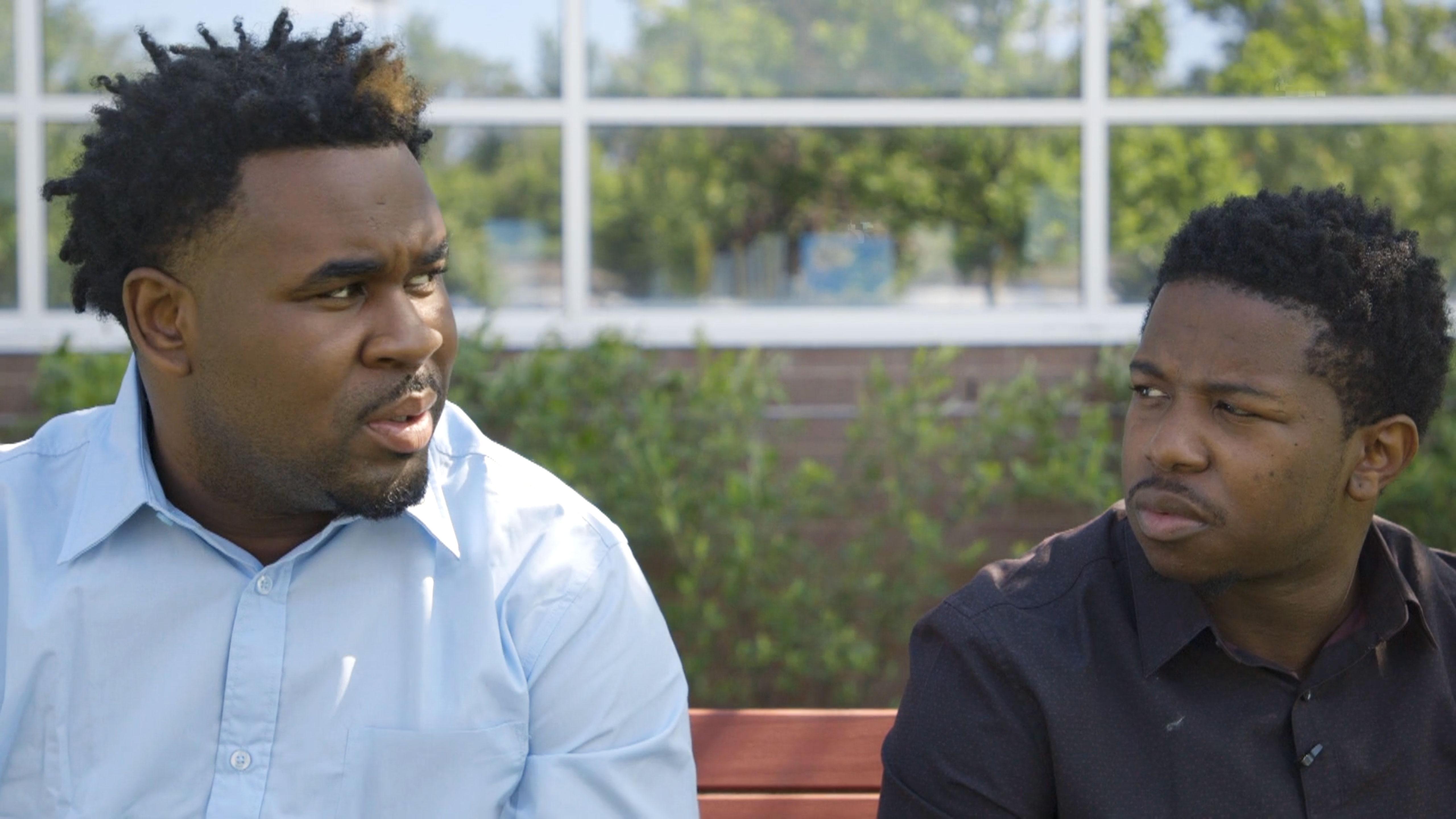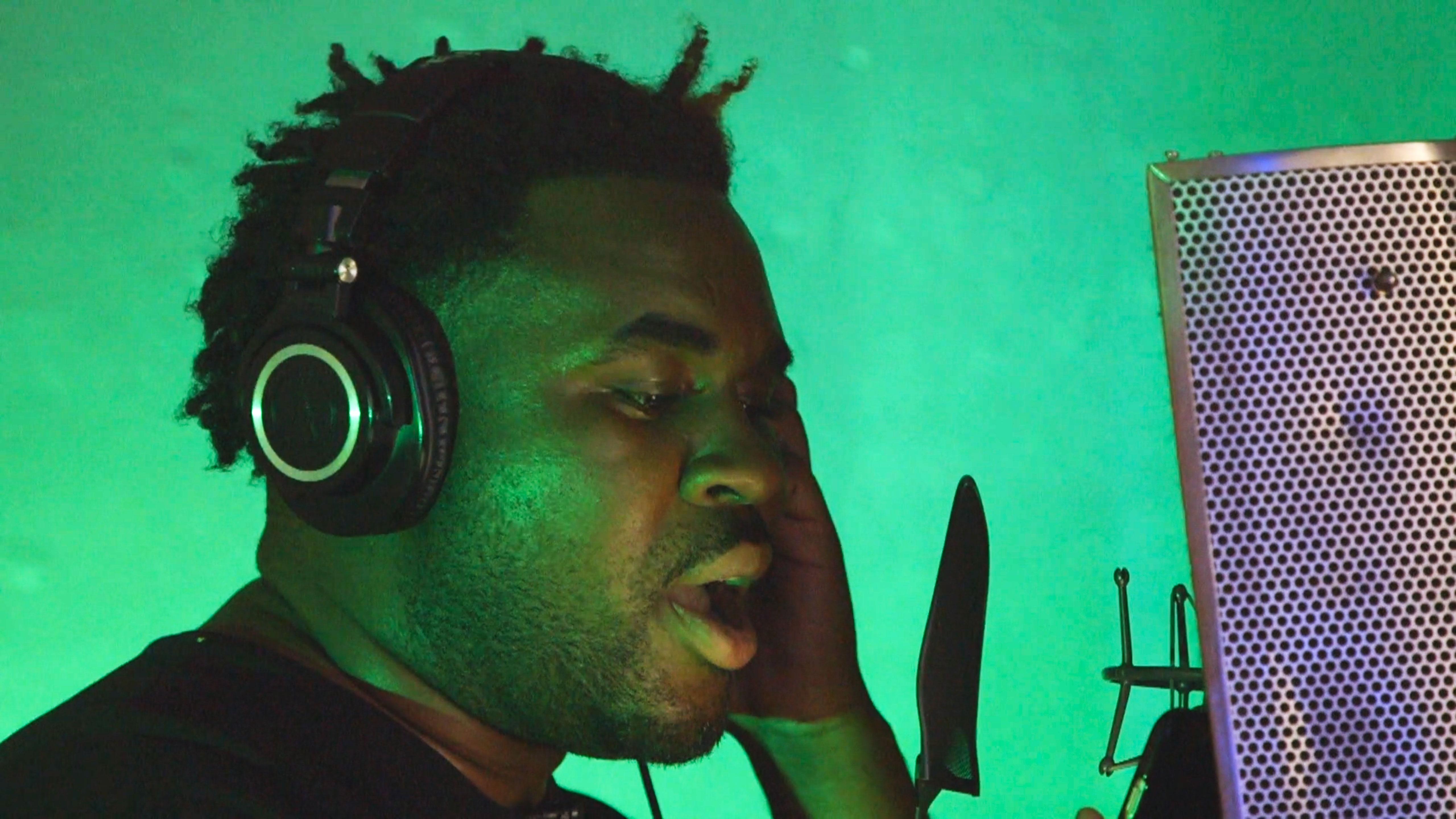Jsaron Jones | Stories | Firsthand: Gun Violence
Where Chicago Shootings Go Unchecked, Owning a Gun Can Feel Like a Necessity
“The need for protection still exists, whether you can legally carry or not.”
Jsaron Jones, 29, was shot in the leg in 2018. The injury required multiple blood transfusions, and it took him 10 months to recover.
Today, Jones sees living in Chicago without a gun as a way of tempting fate. He's convinced that not having one would make him more likely to be shot — again.

Watch: Ask Why
“It’s dangerous every day walking in Chicago,” he told WTTW. “You can have no affiliation with nobody and you can die innocently, so be prepared.” He added that if being prepared “means carrying a gun – hey, it means that.”
As a teenager, Jones lost five of his closest friends to shootings. “It did something to me; it made me more dangerous, a little more hateful,” Jones said. “Because when you lose someone, it’s a different feeling. [If] I lose somebody, somebody else gotta lose somebody. That’s how my mentality was.”
Before the shooting, Jones was arrested for unlawful use of a weapon. Although he had a firearm owner's identification card, or FOID, the license did not allow him to carry a concealed firearm. Police claimed he was carrying it in his waistband when they stopped him.
Jones was arrested again on gun-related charges on September 10, 2019 and is being held in Cook County Jail.

Jsaron Jones Photo by Zakkiyyah Najeebah for WTTW
Research shows that a majority of criminal offenders in Chicago obtain weapons for a single reason: self-protection. A 2016 survey of Chicagoans on probation or parole for a violent crime found that a full 83 percent had gotten their most recent gun to protect themselves.
“The need for protection still exists, whether you can legally carry or not,” said Sharone Mitchell, Jr., the director of the Illinois Justice Project. “So people choose to make that decision.”
Mitchell said the visible presence of the Chicago Police Department doesn’t help ease the fear of danger. After all, the department solved fewer than half of the more than 500 homicides that occurred in the city last year.
“They live in communities that are overpoliced. They're overpoliced because of concerns of violence. The violence is the reason why they carry,” said Mitchell. “You can see this is very circular.”
Michael Sierra-Arévalo, an assistant professor at the Rutgers School of Criminal Justice, studied the relationship between protective gun ownership and perceptions of police in high-violence neighborhoods on Chicago’s South and West Sides. His findings show that in neighborhoods where police are seen as ineffective, unfair, and potential victimizers, residents use guns as a means of “self-help.”
“People that are unable or unwilling to use formal legal recourse – such as the police or the courts – still have problems that they need to solve,” Sierra-Arévalo said. “If you don't believe that there is a standard mechanism to provide for that safety, then you might choose to engage in violence as a means to either dissuade others from victimizing you in the future or to enact retribution for victimization that's already occurred.”
Sierra-Arévalo said his research shows the criminal justice system can influence gun violence by controlling the conditions that can lead to it. “Fairer, more respectful, more just interactions can actually help shift the relationship between communities and the police in such a way as to reduce the very behaviors that community members and the police want to reduce – things like gun-carrying and gun use,” he said.
Firearms trainer Javondlynn Dunagan said many of the clients who come to her South Side-based company have a similar feeling: that they have “no other choice but to take a proactive stance” and get a gun, even if they are fearful.
“You have people who come in the door [who] say, ‘I want to still carry. I'm concerned about my community or traveling here and there,’” she said.
Dunagan, a retired probation officer, got into the firearms training business after divorcing her husband, a former cop. She was used to having a gun in the home and wanted to acquire her own for safety.
“When he left, I was like, I don't feel safe in my house without a gun,” Dunagan said. “I had been around guns all through my career and at work all day. But it was something about having that gun at home that I felt more comfortable and secure, and that's how I feel now.”
She now teaches responsible ownership through her company, JMD Defense & Investigations, which offers concealed carry classes as part of its services.
“I think because of our communities and how segregated Chicago is that we may live in more – or commute through more – high-crime areas,” she said.
Jsaron Jones said he will always choose to carry a gun to protect himself. “The city that we come from, it has this devilish spirit,” he said. “Even if you’re on the right path, you can be walking down the street and get knocked right off. I hope I just don’t have to commit a crime to stay alive.”




